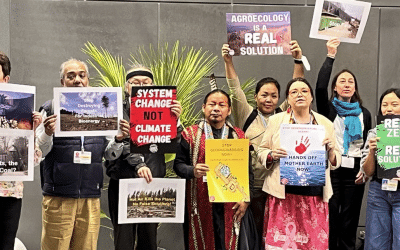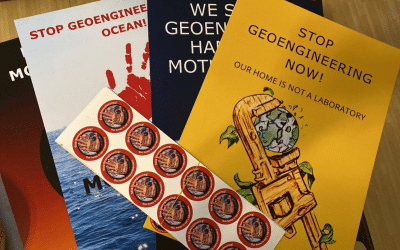The undersigned organizations would like to express our concerns about the upcoming IPCC joint working group expert meeting on geoengineering to be held in Lima, Peru, June 20-22, 2011.
Geoengineering, the intentional large-scale manipulation of the Earth’s systems to modify the climate, is one of the most serious issues the international community will face in the decades ahead. The prospects of artificially changing the chemistry of our oceans to absorb more CO2, modifying the Earth’s radiative balance, devising new carbon sinks in fragile ecosystems, redirecting hurricanes and other extreme weather events are alarming. The potential for accidents, dangerous experiments, inadequate risk assessment, unexpected impacts, unilateralism, private profiteering, disruption of agriculture, inter-state conflict, illegitimate political goals and negative consequences for the global South is high. The likelihood that geoengineering will provide a safe, lasting, democratic and peaceful solution to the climate crisis is non-existent.
The IPCC aims to be “policy relevant” and “policy neutral,” and must take great care not to squander its credibility on geoengineering, a topic that is gathering steam precisely when there is no real progress on mitigation and adaptation. The IPCC’s announcement of the expert meeting already suggests that geoengineering has a place in the portfolio of legitimate responses to climate change (a highly contestable claim), and that the role of the IPCC is to define what that role is. Permit us to stress that this is not primarily a scientific question; it is a political one. International peasant organizations, indigenous peoples, and social movements have all expressed outright opposition to such measures as a false solution to the climate crisis.
The Scientific Steering Group of this expert meeting includes well-known geoengineering advocates who have called for steep increases in funding for research and for proceeding with experimentation, as well as scientists who have patents pending on geoengineering technologies and/or other financial interests. Asking a group of geoengineering scientists if more research should be done on the topic is like asking a group of hungry bears if they would like honey. Their predictable answer should be viewed with skepticism. At the same time, independent organizations, which have devoted years of critical research to geoengineering, are not allowed to participate, even as observers.
[Signed by 160 groups – view signatories here]


